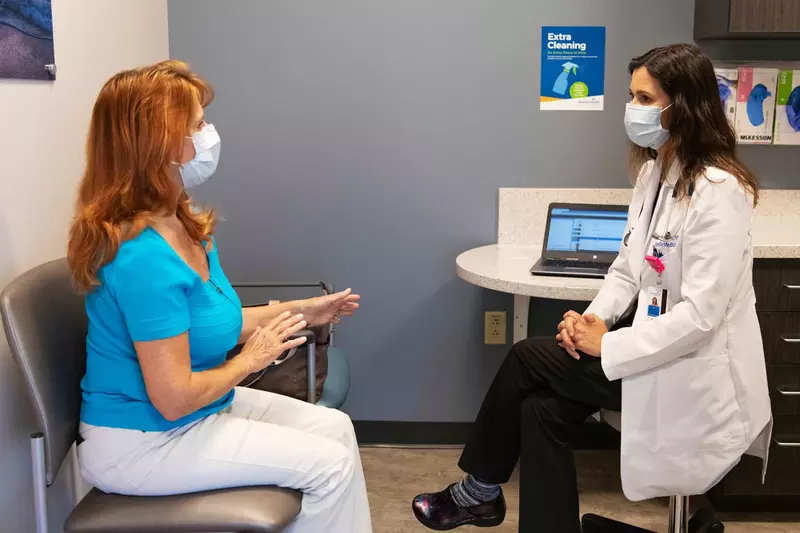- AdventHealth

We go to the doctor when we’re sick to get our bodies healthy again, and we go when we’re well to keep an eye on our overall health. Yet we often forget the role our mental health plays in feeling whole.
With one in every five adults experiencing a mental illness each year, understanding that your primary care physician can help you get the treatment you need is more important than ever. While it can be hard to reach out for help, your trusted physician can support your mental health when you’re feeling overwhelmed, stressed, anxious or depressed.
If you’re struggling with mental illness, talk to your doctor today and get on the path to wellness.
Make a Plan
Bringing up mental health is a lot easier said than done. Make it happen with a plan. Write down on your to-do list when you’re going to call and schedule an appointment. It can be during your wellness visit or a separate special checkup.
Decide the date and time you’ll call the office. Put it in your calendar. And when that time comes, pick up the phone or request an appointment online.
Practice Makes Perfect
Despite the growing awareness around the importance of mental health, there’s still a stigma attached to the topic — even when talking to our own doctors. Practice having the conversation with a trusted family member or friend. Share the feelings and symptoms you’ve been experiencing and be upfront about seeking help.
Chances are your loved one will support you on your journey and may even share their own mental health struggles or experiences. That practice can help make it a little easier to open up when you do meet with your doctor.
Prepare for the Appointment
If you’re still feeling nervous about your appointment, write down a few notes about what you want to share. Jot down recurring symptoms, when they occur and how long they last. Think about questions you want to ask your doctor and any treatment goals you may have.
Goals may include types of treatment you want to try (therapy, medication or another approach) or milestones you want to achieve — fewer panic attacks or the ability to deal with stress, for example.
Know Your Strength
Many people feel like it’s a weakness or failure to ask for help when facing a mental illness. But the truth is, recognizing you’re suffering from a medical condition that can be treated and seeking the support you need to be the healthiest version of you shows real strength.
Your doctor will always be there for you at every step of your health journey. Listening, supporting and guiding you to the treatment you need — whether it’s for diabetes, high blood pressure, a temporary illness, anxiety, depression or another mental illness. And, your provider will offer those resources with compassionate care that’s focused on improving your physical, mental and spiritual health.
Whole Health Takes a Whole Team
Your primary care physician (PCP) is a very important part of your wellness team and can help with support for every aspect of your health — physical, mental and spiritual. Your provider can see you in-person or you can schedule a video visit from the comfort of your home.
If you don’t have a primary care doctor, visit AdventHealth to find one who is right for you.



